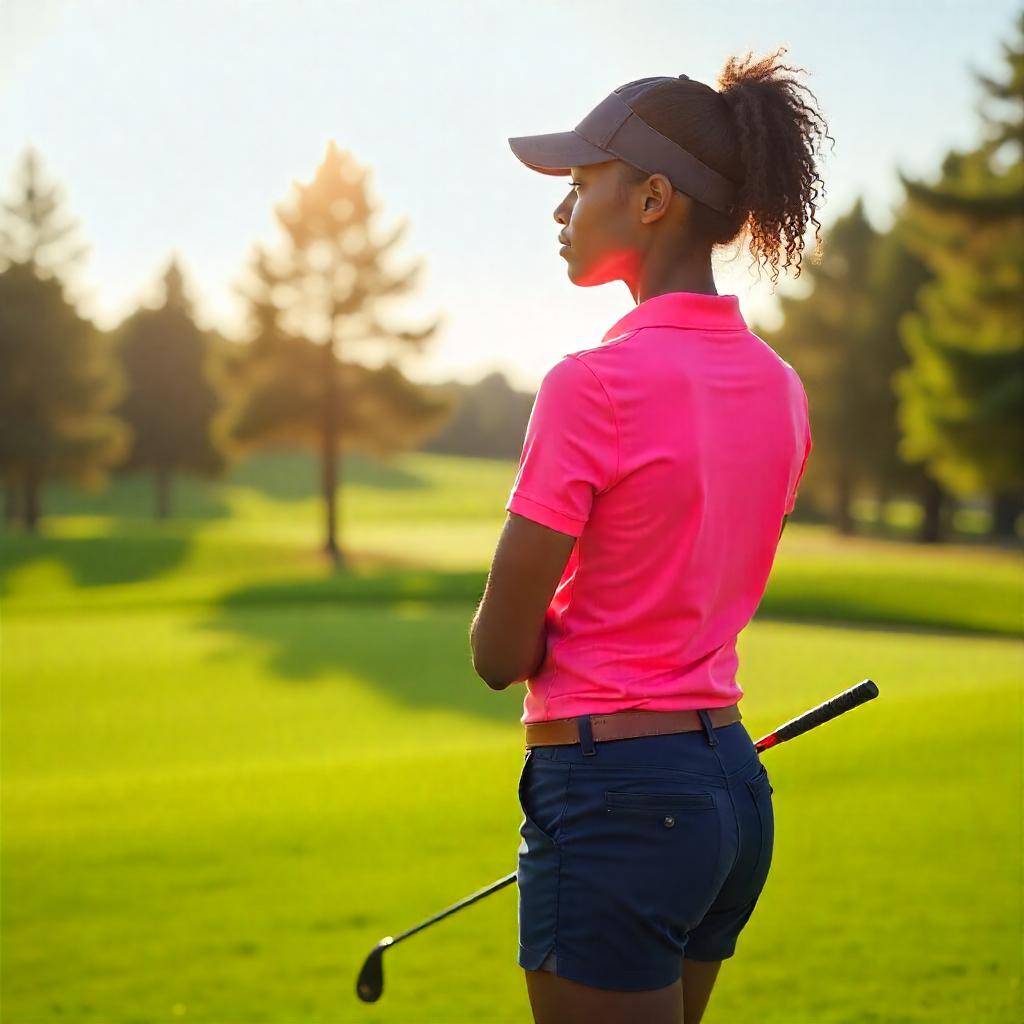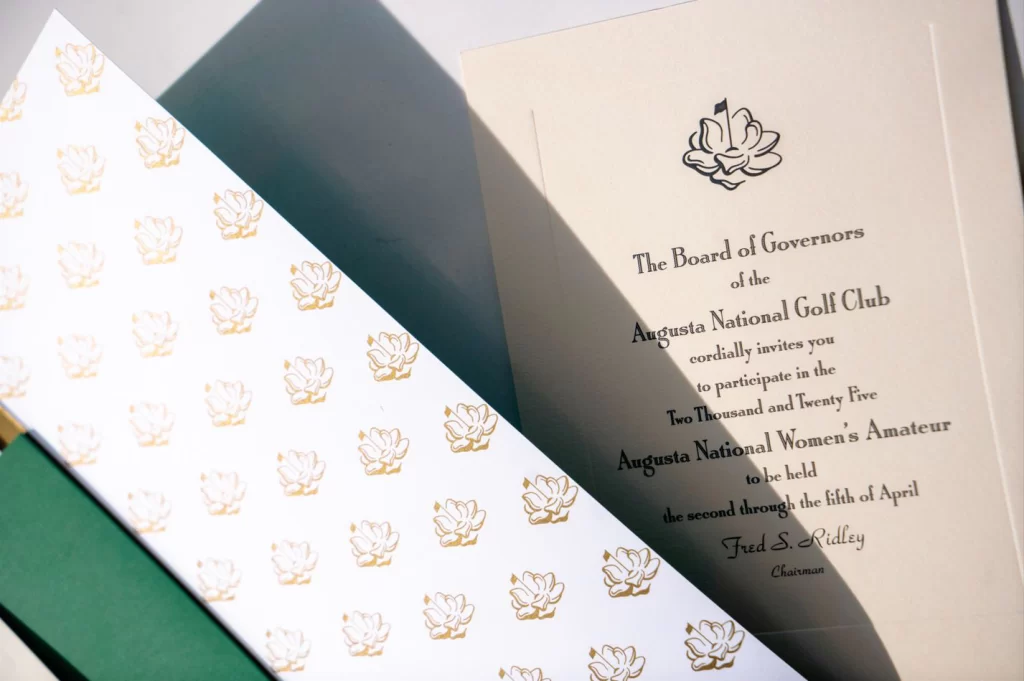Systemic Challenges in Golf: Why No African American Women Made the 2025 Augusta Field
The Augusta National Women’s Amateur (ANWA) is one of the most prestigious events in women’s amateur golf, featuring top-ranked players from around the world. However, the absence of African American women in the 2025 field raises important questions about representation, access, and opportunity in the sport. In January, invitations to compete in the tournament were sent and 65 players thus far have confirmed for the Championship, which will be held April 2-5 in Augusta, Ga.
Qualifications to compete in the elite event are primarily based on performance. It is the key factor in receiving an invitation. However, systemic barriers may limit the number of African American women who reach these rankings.
To be invited to the ANWA, players must meet one of the following criteria:
1. Reigning U.S. Women’s Amateur champion
2. Reigning Women’s Amateur champion
3. Reigning Women’s Asia-Pacific Amateur champion
4. Reigning R&A Girls Amateur champion
5. Reigning U.S. Girls’ Junior champion
6. Reigning Girls Junior PGA champion
7. Reigning NCAA Division I individual champion
8. Past champions of the Augusta National Women’s Amateur within the last five years
9. The 30 highest ranked players from the United States of America based on the prior year’s final Women’s
World Amateur Golf Ranking, not otherwise qualified
10. After qualifications 1-8 above, the 30 highest ranked players not otherwise qualified, as listed on the prior year’s (2022) final Women’s World Amateur Ranking
11. Players receiving special invitations from the Augusta National Women’s Amateur Committee
Barriers to Representation
Despite the growing diversity in golf, African American women remain significantly underrepresented at the highest levels. Historically, Black representation on the LPGA Tour has been very low, due to systemic barriers such as financial constraints and lack of access to elite training facilities. Only eight Black women have earned full-time status in the tour’s history. These trailblazers include:
1. Althea Gibson – The first African American woman to play on the LPGA Tour in 1964, breaking racial barriers in professional golf.
2. Renee Powell – The second Black woman to join the LPGA Tour in 1967, later becoming a prominent advocate for diversity in golf.
3. LaRee Sugg – Competed on the LPGA Tour in the late 1990s and early 2000s.
4. Shasta Averyhardt – Earned LPGA membership in 2011, becoming the fourth African American woman on the tour.
5. Cheyenne Woods – The niece of Tiger Woods, she gained LPGA status in 2015 and won a Ladies European Tour event.
6. Sadena Parks – Secured her LPGA card in 2015, becoming one of the few Black women to play at the highest level.
7. Ginger Howard – A rising talent who earned LPGA membership through Q-School.
8. Mariah Stackhouse – Became the eighth African American woman to earn LPGA status in 2017 and has since been a key advocate for diversity in golf.
Several factors contribute to this disparity:
1. Limited Access to Elite Junior Golf Programs: Many top amateur players develop their skills through exclusive junior golf programs, which often require substantial financial resources and access to top-tier coaching. The cost of competing in national and international tournaments can be prohibitive for many young athletes from underrepresented communities.
2. College Golf Representation: The NCAA serves as a major pipeline for amateur golf. While historically Black colleges and universities (HBCUs) have strong golf programs, they do not always receive the same funding or exposure as larger, predominantly white institutions. This can limit the number of African American women who gain recognition in the WAGR rankings.
3. Historical Exclusion and Cultural Barriers: Augusta National Golf Club, the host of the ANWA, only began admitting women as members in 2012. While the creation of the ANWA in 2019 was a positive step for women’s golf, the sport’s long history of exclusion continues to affect opportunities for minority players.
4. Lack of Special Invitations for Underrepresented Players: The ANWA committee has the discretion to issue special invitations. While they have extended invites to international players and top amateurs, there has been no indication that diversity considerations have played a role in selections.
The Importance of Inclusion
The Augusta National Women’s Amateur is a highly visible event that could serve as a platform to promote greater diversity in golf. The absence of African American women highlights the need for broader efforts to support young Black female golfers through:
• Expanded junior development programs that focus on minority communities.
• Increased financial support and sponsorship opportunities for competitive young golfers.
• Greater outreach and recruitment of African American players into elite amateur and collegiate golf.
Looking Ahead
While the ANWA is designed to feature the best amateur golfers in the world, its current qualification system does little to address historical inequalities in golf. A more inclusive approach, such as offering special invitations to underrepresented players or expanding pathways for qualification, could help bridge the gap and ensure a more diverse field in future tournaments.
The absence of African American women in the 2025 Augusta National Women’s Amateur is not just a reflection of rankings but of broader systemic challenges within the sport. Addressing these barriers will require a long-term commitment from golf institutions, sponsors, and governing bodies to make the game more accessible to all. The Augusta National Women’s Amateur, which has hosted the top women amateurs in golf since 2019, will celebrate its sixth Championship in 2025.
Tickets to the Augusta National Women’s Amateur are sold out following an online ticket application process. No tickets will be available at the gates. For more information, please visit ANWAgolf.com



